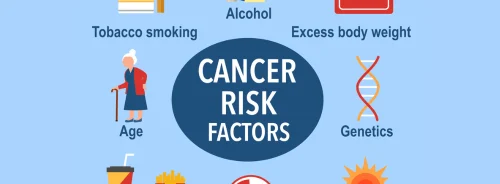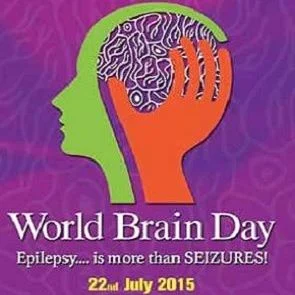This year's World Brain Day (22 July) campaign aims to improve awareness and care of epilepsy, a common neurological disorder that affects more than 50 million people worldwide. The most important causes of epilepsy include perinatal brain injury, infections, traumatic brain injury, and stroke — and all these conditions are preventable.
In January 2015, the World Health Organization (WHO) approved a resolution calling for coordinated efforts to address health, social and public knowledge implications of epilepsy. Thus, World Brain Day activities will be organised in collaboration with the International League Against Epilepsy (ILAE) and International Bureau of Epilepsy (IBE). The World Federation of Neurology (WFN) is working with WHO to organise a joint press conference on 22 July 2015.
Untreated epilepsy is associated with 3-6 times increased risk of premature death. Most patients (almost 80 percent) with epilepsy live in low and low-middle income countries and 75 percent of those affected do not have access to treatment. This is most alarming as more than 70 percent of these patients can lead a normal life if properly treated, according to WFN officials. Major reasons for not having access to treatment (treatment gap) include lack of awareness, societal misconceptions ("stigma"), availability and affordability of anti-epileptic medications. "It is a low priority area for most of the developing countries' governments," said WFN officials.
This joint advocacy campaign by WHO, WFN, ILAE and IBE is intended to create numerous activities at national and local levels that will increase governmental awareness and action regarding care and treatment of epilepsy.
As the major causes of epilepsy are all preventable, the campaign would like to emphasise on prevention. Local advocacy groups are encouraged to create clear messages in local languages and promote them via electronic and social media channels, as well as billboards, banners and public gatherings. Celebrities, scientists and sports personalities with epilepsy could be a part of this advocacy campaign, organisers said.
The first World Brain Day was started by WFN in 2014 with the slogan “Our brains-Our future”. This global campaign was designed to promote awareness about brain and neurological diseases and to promote brain health.
Source: European Academy of Neurology
Image credit: International League Against Epilepsy
In January 2015, the World Health Organization (WHO) approved a resolution calling for coordinated efforts to address health, social and public knowledge implications of epilepsy. Thus, World Brain Day activities will be organised in collaboration with the International League Against Epilepsy (ILAE) and International Bureau of Epilepsy (IBE). The World Federation of Neurology (WFN) is working with WHO to organise a joint press conference on 22 July 2015.
Untreated epilepsy is associated with 3-6 times increased risk of premature death. Most patients (almost 80 percent) with epilepsy live in low and low-middle income countries and 75 percent of those affected do not have access to treatment. This is most alarming as more than 70 percent of these patients can lead a normal life if properly treated, according to WFN officials. Major reasons for not having access to treatment (treatment gap) include lack of awareness, societal misconceptions ("stigma"), availability and affordability of anti-epileptic medications. "It is a low priority area for most of the developing countries' governments," said WFN officials.
This joint advocacy campaign by WHO, WFN, ILAE and IBE is intended to create numerous activities at national and local levels that will increase governmental awareness and action regarding care and treatment of epilepsy.
As the major causes of epilepsy are all preventable, the campaign would like to emphasise on prevention. Local advocacy groups are encouraged to create clear messages in local languages and promote them via electronic and social media channels, as well as billboards, banners and public gatherings. Celebrities, scientists and sports personalities with epilepsy could be a part of this advocacy campaign, organisers said.
The first World Brain Day was started by WFN in 2014 with the slogan “Our brains-Our future”. This global campaign was designed to promote awareness about brain and neurological diseases and to promote brain health.
Source: European Academy of Neurology
Image credit: International League Against Epilepsy
Latest Articles
healthmanagement, brain, epilepsy, WHO, neurology, neurological illnesses
This year's World Brain Day (22 July) campaign aims to improve awareness and care of epilepsy, a common preventable and treatable neurological disorder that affects more than 50 million people worldwide.










